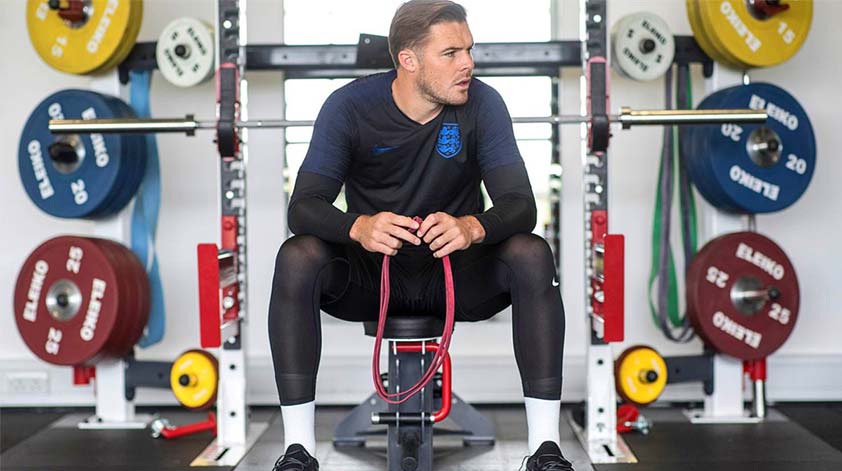
Keeping our minds fit is just as important to our health and well-being as keeping our bodies fit. As with our bodies, our brains will see natural changes and declines as we age.
Taking steps to care for our brains today can help minimise these impacts. Thankfully, there are many things we can do to mitigate these changes.
Exercise Regularly
Getting plenty of exercise is linked to many health benefits, including maintaining cognitive function as you age and a lessened risk for Alzheimer’s disease. Health authorities, like the NHS, recommend getting 150 minutes of moderate and 75 minutes of vigorous exercise each week, which could be spread out as 30 to 60-minute sessions four or five times a week.
Activities that increase your heart rate include brisk walking, running, riding a bike, hiking, dancing, rollerblading, and swimming. In addition to getting cardio activities in, adding strength training is important for a well-rounded fitness routine. This can include body-weight exercises (including yoga, Pilates, and tai chi), weightlifting, or using resistance bands.
In addition to increasing your heart rate with moderate and vigorous exercise, it’s also recommended that you avoid sitting for long periods, and if you can’t, break up long periods of sitting down with movement.
Prioritise Sleep
While science still hasn’t figured out why we need sleep, it has developed a few theories about what it does for brain health, like helping consolidate our short and long-term memory and helping to reduce proteins that can lead to dementia.
Though these are theories, one definite thing is known about sleep: we need it for a fit mind and need plenty of it. It’s ideal to get seven to nine hours of sleep each night, and if you’re wondering, sleeping in on weekends or days off isn’t enough to make up for lost sleep during the week.
A few ways to ensure you get enough sleep into your routine include having a regular sleep schedule, avoiding screen time for a half hour to an hour before bed, exercising regularly, and having a cool, dark sleeping space.
Eat Well
Not all food is built the same, and because of this, it’s important to be mindful of what you eat for your brain health to also keep your mind fit. The MIND (Mediterranean-DASH Intervention for Neurodegenerative Delay) diet is often emphasised for brain health and overall health because it was specifically developed to improve brain health (like reducing dementia and age-related cognitive decline). It emphasises adding foods like these to your diet:
- Whole grains
- Leafy greens and other vegetables
- Nuts
- Beans and lentils
- Berries
- Chicken, turkey, and fish
The MIND diet also recommends limiting fast food, cheese, red meats, pastries, sweets, and butter.
Socialise
Seeking out the company of friends and family and forming new friendships can help keep your brain functioning well. This helps because socialising keeps your mind engaged and stimulated and limits feelings of isolation or loneliness, which have been linked to poor cognitive functioning.
Stimulate Your Mind
Keeping your mind active and stimulated is essential to keeping your brain in good shape. Like exercising your body, you can think of mental stimulation as exercising your brain. Some fun and popular ways to exercise your brain include:
- Doing a jigsaw puzzle
- Doing a crossword puzzle
- Playing Sudoku
- Playing word games like Scrabble
- Playing card games like solitaire, bridge, rummy or poker (the same kind you’d find at a Boku casino online)
- Trying a new recipe
- Travelling somewhere new
- Learning a new dance (or learning to dance)
- Learning to play an instrument
When it comes down to it, mental stimulation can look different for each person and thus has endless possibilities.
Wear a Helmet
When we think of keeping our mind fit, we typically think in terms of age-related cognitive decline, so it’s easy to forget that injuries, like concussions, can also impact our brain health. In addition to causing discomfort and poor brain functioning while recovering from a concussion, having multiple concussions has also been linked to poor cognitive function later in life.
So, when engaging in activities where a concussion or head injury is more likely to happen, such as playing a contact sport, biking, skating, skiing, rollerblading, snowboarding, or skateboarding, wear a helmet.
Protect Your Cardiovascular Health
Health concerns that impact our cardiovascular health, like diabetes, high blood pressure, and high cholesterol, have been linked to increased risks for strokes and dementia. While the connection to brain health isn’t surprising given that the brain, like the rest of our body, needs blood flow to function, the connection isn’t fully understood.
Regardless of why these things impact brain health, taking steps to prevent and control these health concerns can help keep our brains healthy and mind fit. Many recommendations for preventing these health concerns are also activities to protect the brain (such as exercising and eating well).
Avoid Smoking and Limit Alcohol
Smoking, while generally bad for our health, can harm our brains by reducing blood flow to it and accelerating the loss of grey matter. Because of the negative health impacts of cigarette smoking, it’s recommended to avoid it entirely.
Moderate drinking has also been linked to decreased grey matter, so keeping drinks to a minimum is best for brain health. The MIND diet suggests no more than a small glass of wine each day.
Our cognitive functioning will change as our brains age, but by protecting our brain health, we can minimise the natural decline. Protecting your brain fitness is all about building habits that support you for a lifetime, with the bonus of helping you thrive physically.









